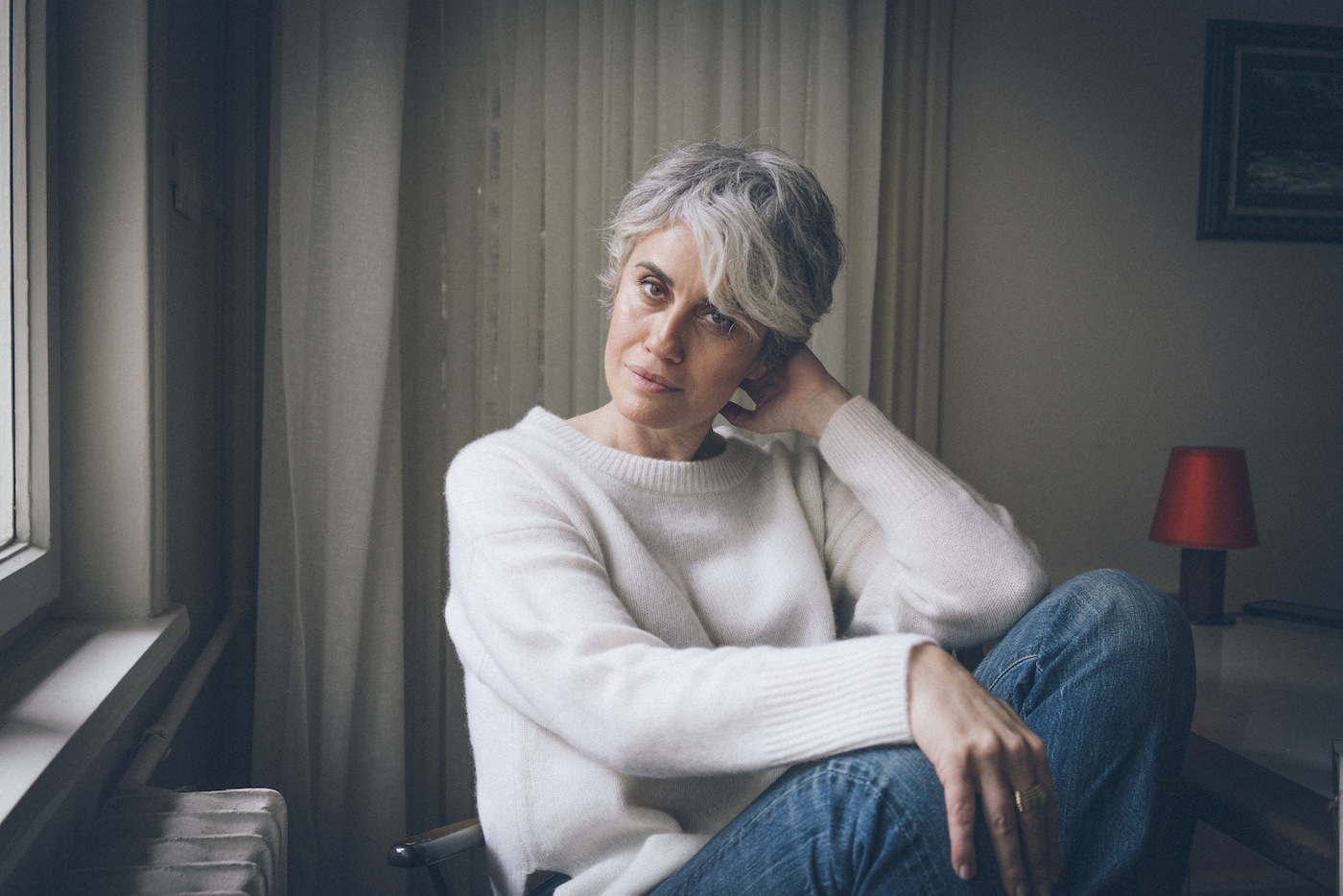- Howard Murad, MD, founder of Murad Skin-Care
- Ranella Hirsch, MD, board-certified dermatologist based in Cambridge, Massachusetts
Although menopause begins, on average, at the age of 51, many of these issues can start even earlier. “As you age, the skin naturally becomes more dehydrated, which leads to an array of skin concerns such as fine lines and wrinkles as well as dullness,” says Dr. Murad.
This leaves many middle-aged women asking themselves: “WTF is going on with my skin?” To answer that question, we tapped experts to explain how menopause affects your complexion, and how you can deal with it. Keep scrolling to learn more.
How to care for your skin during menopause
1. Hydrate, hydrate, and then hydrate some more
According to Boston-based dermatologist Ranella Hirsch, MD, estrogen helps to maintain skin barrier function, which prevents water loss. “Estrogen also promotes sebum production,” says Dr. Hirsch, so menopausal skin has fewer natural oils. Combine all that with the fact that your skin is thinner (from the aforementioned decrease in collagen) and you’ve got a recipe for dehydration. It may feel like your regular face products have stopped “working,” but it’s actually that your skin now requires more hydration to function as it once did.
Dr. Hirsch says there are three main types of moisturizers: occlusives, which act like a seal and prevent skin from losing moisture to the environment; emollients, which soften skin by shoring up lost lipids and other parts of the moisture barrier; and humectants, which draw water to the top layer of skin and hold it there. “Occlusives and emollients are the two categories generally best-suited for menopausal skin,” she notes.
We’re fans of Korres’ White Pine Meno-Reverse Volumizing Serum-In-Moisturizer ($58), which is formulated specifically for post-menopausal complexions. The two-in-one serum and moisturizer features propanediol, an emollient that helps skin retain moisture, as well as Abyssinian oil, an occlusive ingredient that’s extracted from the seed of a Mediterranean plant.
2. Use brightening ingredients for dark spots
If you’re of menopausal age and experiencing a bout of dark spots on your face (or other areas prone to sun exposure), check with your doctor to rule out melasma, a condition that causes skin discoloration and can be exacerbated by hormonal changes and sun damage. To combat these dark spots and improve overall texture and tone, Dr. Murad and Dr. Hirsch recommend incorporating ingredients like vitamin C and niacinamide into your routine.
Empelle Serum ($175) is tailor-made for estrogen-deficient skin and features vitamin C and niacinamide, as well as peptides that help to improve skin laxity and the appearance of fine lines.
3. Protect your skin
Shielding your skin from the sun’s harmful UV rays doesn’t end once you hit menopause. In fact, experts agree that sun exposure can be even more detrimental as you get older. “Precancerous growths and skin cancers from a lifetime of cumulative exposure become more prevalent as you age,” says Dr. Hirsch. “Since the sun breaks down collagen, you’ll want to keep skin protected.”
According to Dr. Murad, if your skin is already damaged, any additional sun it’s exposed to can make things worse (think: spots that formed in your 40s getting even darker). He recommends using a sunscreen with a minimum of SPF 30 and reapplying every two hours throughout the day. Try Murad City Skin Age Defense SPF 50, which boasts a soft peach tint to both correct and illuminate light to medium skin tones or Black Girl Sunscreen SPF 30, which doubles as a moisturizing lotion, if you have dark skin.
4. Avoid acne triggers
Acne can appear in your 40s through 60s for the same reason it showed up during puberty: fluctuating hormones. An increase in androgens during this time can make skin more susceptible to flare-ups. And the weakened skin barrier and transepidermal water loss that come with menopause can contribute to inflammation, which may exacerbate acne, according to one study published in the International Journal of Women’s Health.
Dr. Murad says that menopause-related acne typically appears on the lower parts of the face and resembles small cysts, rather than the blackheads and whiteheads that are typically seen in teenagers. These pimples will likely clear up after menopause, but in the meantime, it’s best to avoid triggers, like using pore-clogging oil-based cosmetics; not washing your face properly; or eating foods that can contribute to acne, such as dairy or sugary carbohydrates.
5. Maintain a healthy lifestyle and eat your water.
Drinking water is one way to hydrate, but Dr. Murad is a firm advocate for eating your water. “When you consume water-rich fruits and vegetables, such as cucumbers and watermelons, the water is gradually released into your body as you digest to help keep you hydrated, longer,” he says.
Dr. Hirsch agrees, adding that your urine color is a good indicator of your body’s hydration level. “Ideally, urine should be clear with a slight yellow tinge—the darker it is, the more concentrated it is, which can be a signal that your body is lacking hydration,” she notes.
To amp up your skin’s hydration and temporarily improve its firmness and plumpness, snack on water-rich foods throughout the day (in addition to your daily cups of H2O, of course). Dr. Murad also recommends exercising often and loading up on skin-loving foods like green vegetables and nuts, which have antioxidants and healthy fats that can help nourish skin.
